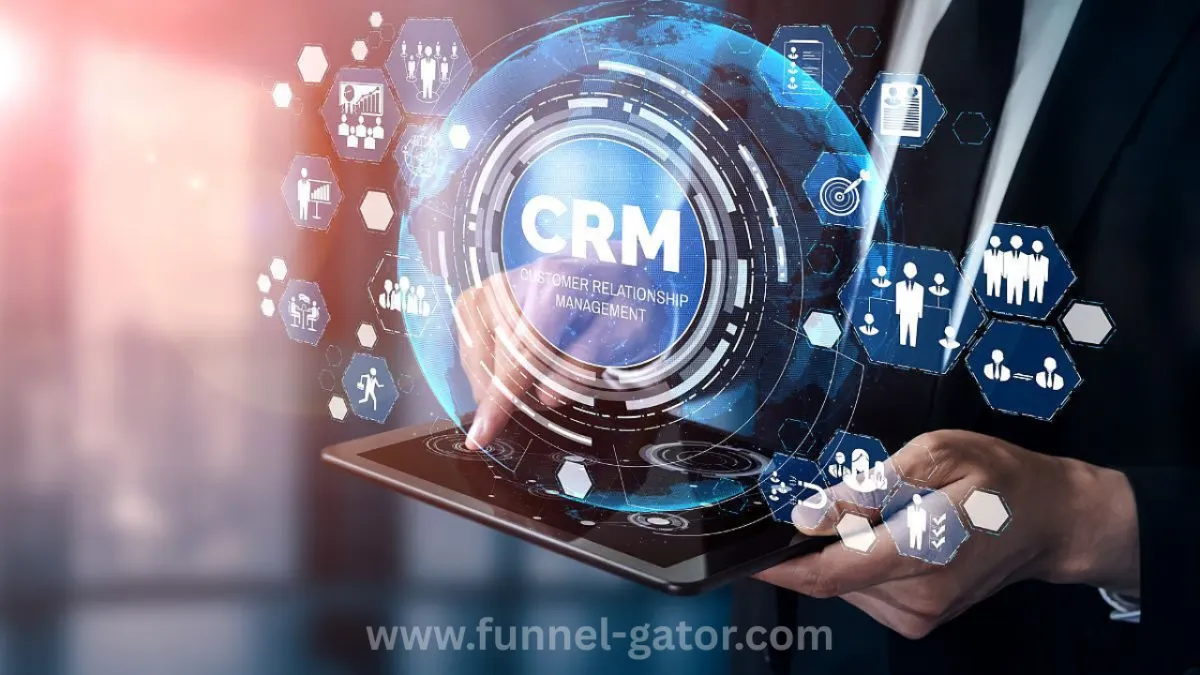
CRM Compliance: The Simple Guide to Protect Your Business and Customers
In today’s digital world, using a CRM (Customer Relationship Management) system isn’t just about storing contacts and tracking leads. It’s also about compliance—making sure your business follows the rules when handling customer data.
But what exactly is CRM compliance, and why should you care?
Let’s break it down in simple words, and by the end, you’ll not only understand it—you’ll be ready to act on it.
📌 What is CRM Compliance?
CRM compliance means ensuring your CRM system follows local and international data privacy laws, security regulations, and ethical standards. Whether it’s GDPR, HIPAA, or PCI-DSS, your CRM must manage customer data lawfully, securely, and transparently.
Imagine this: You run a small online clothing store. You collect customer names, email addresses, and maybe even some payment info. If you don’t store or use that information properly, you could face heavy fines—or worse, lose customer trust.
🧠 Why CRM Compliance is a Big Deal
Here's a short story.
Last year, a medium-sized UK marketing agency was hit with a £20,000 fine. Why? They sent promotional emails to thousands of contacts without proper consent. All the data was in their CRM, but no one checked if it was compliant. A small oversight caused a major financial and reputational loss.
This isn’t just about big corporations anymore. Small businesses are under the same lens.
The risks of non-compliance include:
📉 Legal fines and lawsuits
🚫 Damaged brand reputation
🔓 Data breaches
❌ Customer loss
On the flip side, a compliant CRM system builds trust, boosts credibility, and ensures your business grows with confidence.
✅ How to Ensure Your CRM is Compliant – Step-by-Step
Here’s your step-by-step guide to achieving CRM compliance.
Step 1: Understand the Laws That Apply to You
Different countries have different laws. You might need to follow one or more of the following:
GDPR (EU) – General Data Protection Regulation
CCPA (California) – California Consumer Privacy Act
HIPAA (US) – For healthcare data
PCI DSS – For payment information
👉 Always check the legal requirements based on where your customers live—not just where you operate.
Step 2: Use a CRM with Built-In Compliance Features
Choose a CRM platform that supports compliance by default. Look for:
Data encryption (at rest and in transit)
User access controls
Audit trails
Consent management
Automatic data deletion options
Some great examples are:
Step 3: Get Explicit Consent from Users
Don’t just add people to your CRM. Get their clear, documented consent.
For example:
✔ “I agree to receive promotional emails from [Your Company Name]”
❌ Don’t use pre-checked boxes or vague language.
Step 4: Clean Up Your Data Regularly
Old or unused data is a risk. Make it a habit to:
Delete duplicate contacts
Remove inactive users
Purge outdated records
Archive leads that never converted
Your CRM should help automate this with data hygiene tools.
Step 5: Train Your Team
A CRM is only as compliant as the people using it.
Hold regular training sessions. Teach your team about:
Data privacy
How to log consent
What not to collect
Avoiding unauthorized access
Use real-life scenarios to keep it interesting.
Step 6: Perform Regular Compliance Audits
Audit your CRM system every 6–12 months.
Look for:
Who has access to what
Whether consent records are valid
Any security loopholes
Third-party integrations handling sensitive data
💡 Bonus Tips for Extra Peace of Mind
Use multi-factor authentication (MFA) to secure CRM access
Keep software updated to patch vulnerabilities
Have a data breach response plan
Always notify customers in case of data exposure
🛒 Ready to Choose a CRM? Here’s Why It Matters
Let’s say you’re about to invest in a new CRM tool. You’ll probably look at features like email automation, sales funnels, and analytics.
But don’t ignore compliance features. They’re just as important.
Ask yourself:
Is this CRM platform secure and compliant?
Can I manage customer consent easily?
Does it offer clear access control for my team?
The right CRM system will make compliance easier—not harder.
➡️ Don’t gamble with your reputation. Choose a CRM that’s built with compliance in mind, and watch your business grow with confidence.
📚 FAQs
Q1: What happens if my CRM isn't compliant?
You risk fines, lawsuits, and losing customer trust. Some penalties under GDPR can go up to €20 million or 4% of annual turnover.
Q2: How do I know if my CRM is GDPR compliant?
Look for GDPR tools like consent tracking, data request fulfillment, encryption, and audit logs. Contact your CRM provider and ask about compliance features.
Q3: Can small businesses ignore CRM compliance?
Absolutely not. Even small businesses must follow data laws. Authorities don’t discriminate based on size.
Q4: What’s the easiest way to stay compliant?
Use a CRM that includes automated compliance features, train your staff, and regularly audit your system.
Q5: Are all CRMs compliant by default?
No. Some require manual setup for compliance. Always review documentation or ask the vendor.
🎯 Final Thoughts
CRM compliance might sound complicated, but it doesn’t have to be. With the right mindset, tools, and a little effort, you can protect your customers, your brand, and your business future.
So, when you're choosing your next CRM system, don’t just look at how it works—look at how it protects.
✅ A compliant CRM = a confident business.


